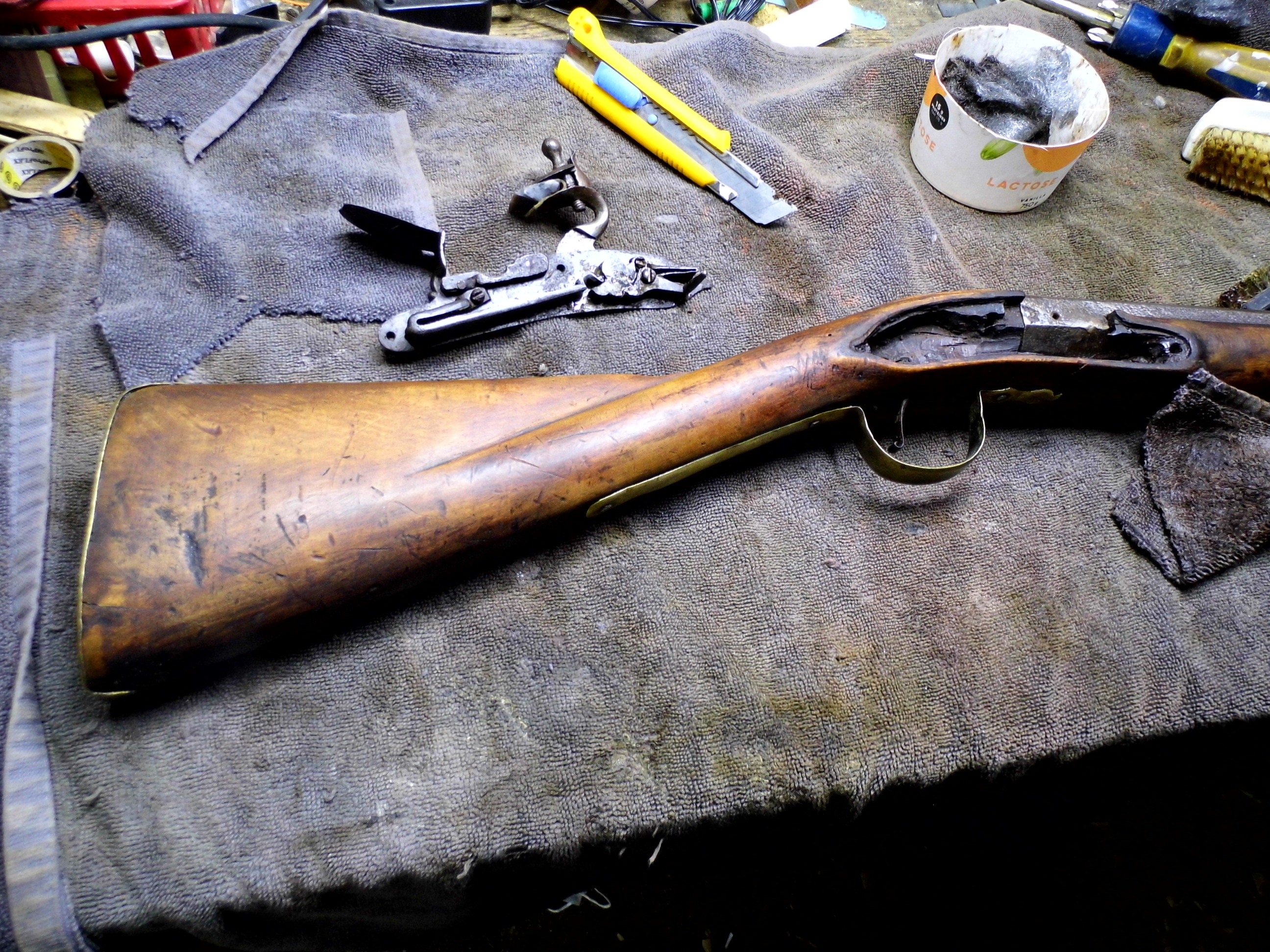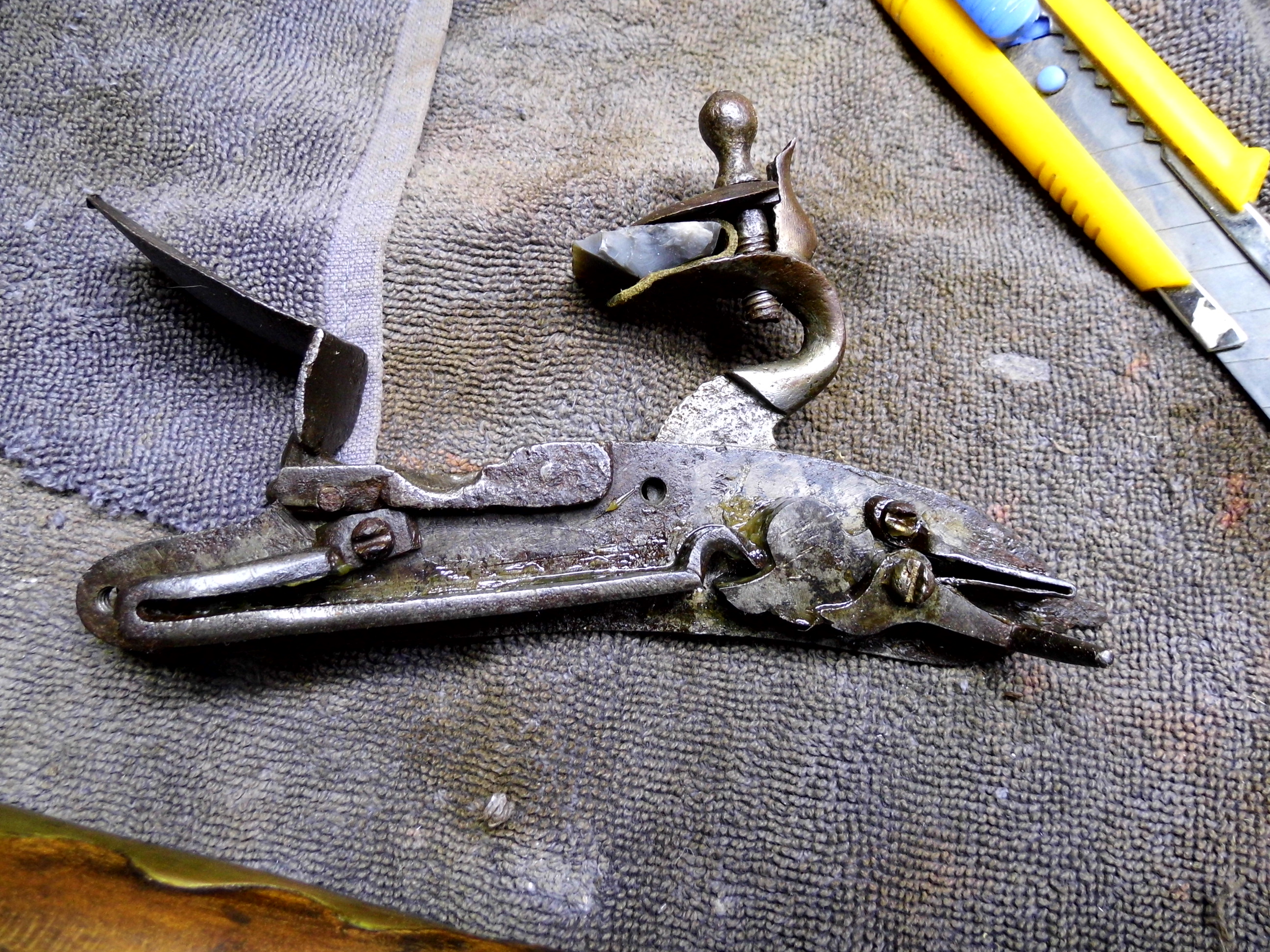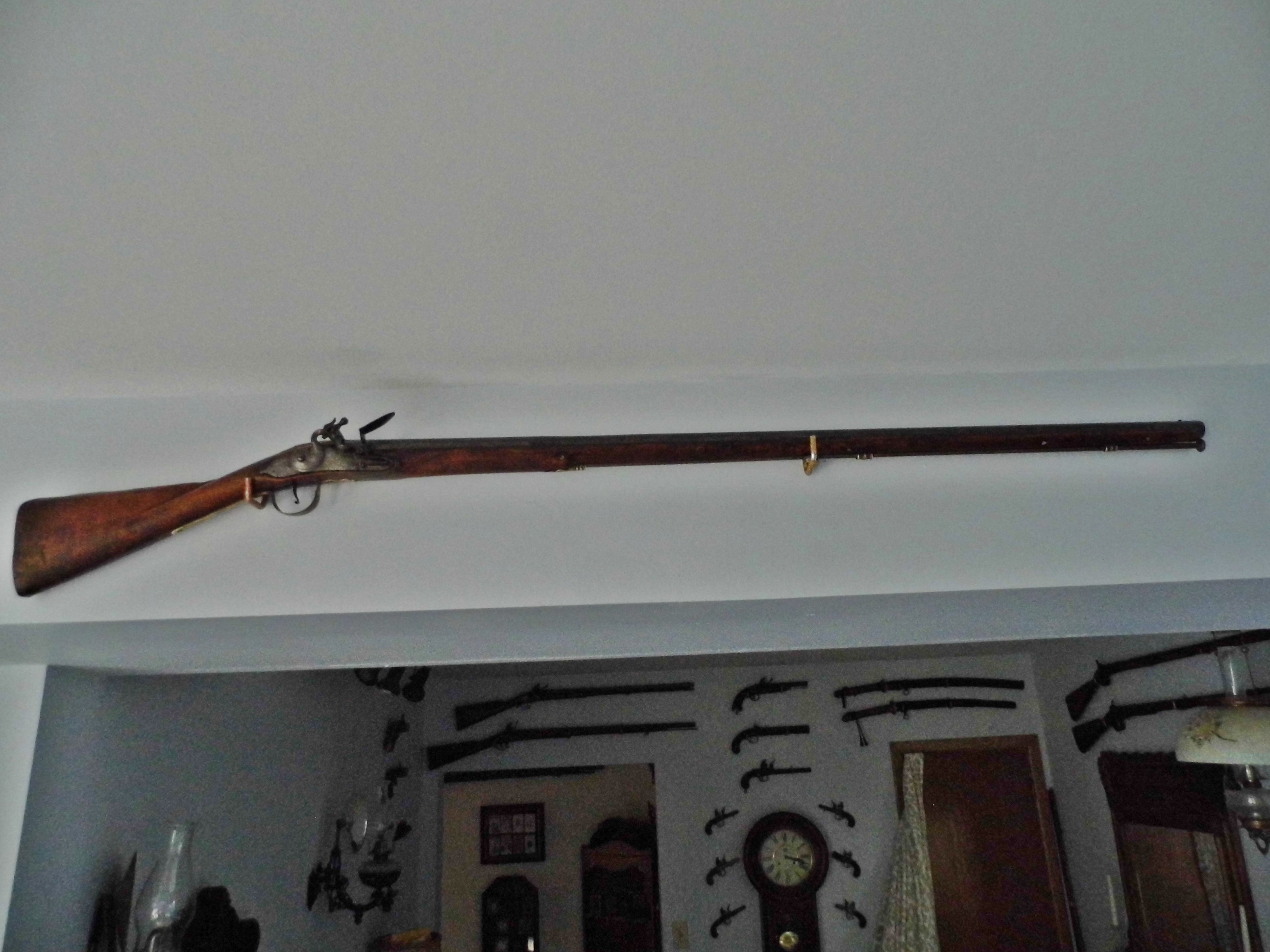Loyer
36 Cl.
I have never been able to identify this old musket or fowler. It has a banana lock plate so I know it is very old but the markings on that plate cannot be read.
The oddest thing about the gun is the unusual serpentine butt plate tang. No barrel stamps readable. Also the barrel mounting screw comes from the bottom.
I have read suggestions this may be a Dutch or French feature. Gun is 59 inches overall length and about .79" caliber.
Anyone have an idea what this really is ?
The oddest thing about the gun is the unusual serpentine butt plate tang. No barrel stamps readable. Also the barrel mounting screw comes from the bottom.
I have read suggestions this may be a Dutch or French feature. Gun is 59 inches overall length and about .79" caliber.
Anyone have an idea what this really is ?




















